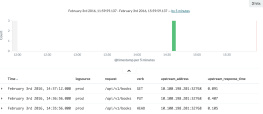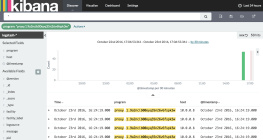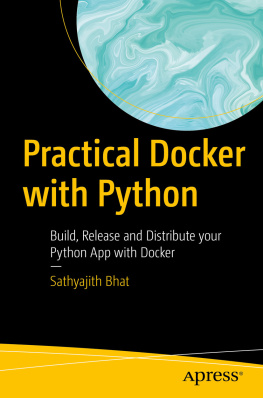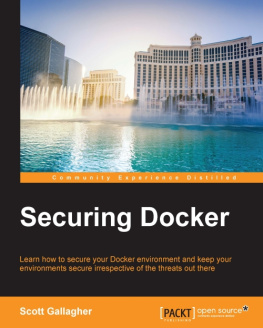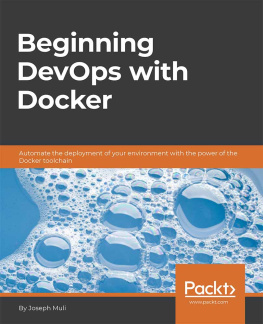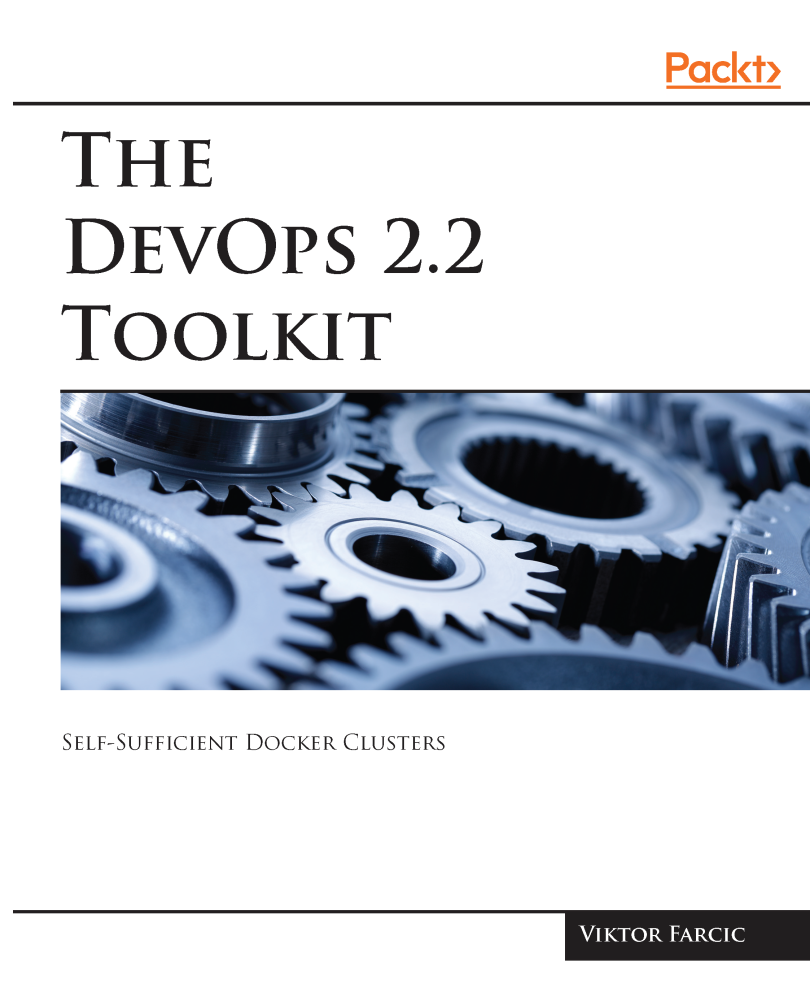
The DevOps 2.2 Toolkit
Self-Sufficient Docker Clusters
Viktor Farcic

BIRMINGHAM MUMBAI
The DevOps 2.2 Toolkit
Copyright 2018 Viktor Farcic
All rights reserved. No part of this book may be reproduced, stored in a retrieval system, or transmitted in any form or by any means, without the prior written permission of the publisher, except in the case of brief quotations embedded in critical articles or reviews.
Every effort has been made in the preparation of this book to ensure the accuracy of the information presented. However, the information contained in this book is sold without warranty, either express or implied. Neither the author, nor Packt Publishing or its dealers and distributors, will be held liable for any damages caused or alleged to have been caused directly or indirectly by this book.
Packt Publishing has endeavored to provide trademark information about all of the companies and products mentioned in this book by the appropriate use of capitals. However, Packt Publishing cannot guarantee the accuracy of this information.
Acquisition Editor: Dominic Shakeshaft
Technical Editor: Nidhisha Shetty
Indexer: Aishwarya Gangawane
Production Coordinator: Arvindkumar Gupta
First published: March 2018
Production reference: 1090318
Published by Packt Publishing Ltd.
Livery Place
35 Livery Street
Birmingham
B3 2PB, UK.
ISBN 978-1-78899-127-8
www.packtpub.com
I noticed that authors sometimes thank famous people for the help they never received. At other times, they publish introduction written by well-established authors who probably didn't even read their book.
There must be a reason behind that. Maybe it helps to have well-known names. Perhaps listing famous people invokes some unknown powers. There might be a kind of a Vudu magic that binds a reader to the book. Even though I doubt that thanking people helps, I'll do it anyways. It's better not to risk it.
I wish to thank the following people: Larry David for being weirder than me; Uncle Bob whose books are always in front of mines in Amazon; Donald Trump for writing entertaining tweets; Josip Broz Tito for not living over 100 years; Netflix for entertaining my daughter while I work; David Heinemeier Hansson for explaining that Ruby On Rails is untestable; Douglas Adams for letting me use his quote at the end of this book. There are many others I could thank, but my humility compels me to stop and list a few others who are not (yet) famous.
This book is dedicated to my daughter Sara that gives me the strength to wake up every morning and do an insane number of working hours. Her smile after coming back from school is all the encouragement I need. To my wife Eva, without whose never-failing support this book would never have been finished.
I love you girls, more than anything in the world. This book is dedicated to you.
To caffeine and sugar, essential ingredients for long nights of writing. To pizza delivery boy without whom I'd starve to death. Viktor Farcic
Contributor
About the author
Viktor Farcic is a senior consultant at CloudBees(https://www.cloudbees.com/), a member of the Docker Captains(https://www.docker.com/docker-captains) group, and books' author.
Viktor coded using a plethora of languages starting with Pascal (yes, he is old), Basic (before it got the Visual prefix), ASP (before it got the .Net suffix), C, C++, Perl, Python, ASP.Net, Visual Basic, C#, JavaScript, Java, Scala, and so on. He never worked with Fortran. His current favorite is Go. His big passions are Microservices, Continuous Deployment, and Test-Driven Development (TDD).
Viktor often speaks at community gatherings and conferences.
Viktor wrote The DevOps 2.0 Toolkit: Automating the Continuous Deployment Pipeline with Containerized Microservices, The DevOps 2.1 Toolkit: Docker Swarm: Building, testing, deploying, and monitoring services inside Docker Swarm clusters, and Test-Driven Java Development all by Packt Publishing. His random thoughts and tutorials can be found at his blog TechnologyConversations.com (https://technologyconversations.com/).
Packt is searching for authors like you
If you're interested in becoming an author for Packt, please visit authors.packtpub.com and apply today. We have worked with thousands of developers and tech professionals, just like you, to help them share their insight with the global tech community. You can make a general application, apply for a specific hot topic that we are recruiting an author for, or submit your own idea.
mapt.io
Mapt is an online digital library that gives you full access to over 5,000 books and videos, as well as industry leading tools to help you plan your personal development and advance your career. For more information, please visit our website.
Why subscribe?
Spend less time learning and more time coding with practical eBooks and Videos from over 4,000 industry professionals
Improve your learning with Skill Plans built especially for you
Get a free eBook or video every month
Mapt is fully searchable
Copy and paste, print, and bookmark content
PacktPub.com
Did you know that Packt offers eBook versions of every book published, with PDF and ePub files available? You can upgrade to the eBook version at www.PacktPub.com and as a print book customer, you are entitled to a discount on the eBook copy. Get in touch with us at service@packtpub.com for more details.
At www.PacktPub.com , you can also read a collection of free technical articles, sign up for a range of free newsletters, and receive exclusive discounts and offers on Packt books and eBooks.
Preface
It seems that with each new book the scope gets fuzzier and less precise. When I started writing Test-Driven Java Development the scope of the whole book was done in advance. I had a team working with me. We defined the index and a short description of each chapter. From there on we worked on a schedule as most technical authors do. Then I started writing the second book. The scope was more obscure. I wanted to write about DevOps practices and processes and had only a very broad idea what will be the outcome. I knew that Docker had to be there. I knew that configuration management is a must. Microservices, centralized logging, and a few other practices and tools that I used in my projects were part of the initial scope. For that book I had no one behind me. There was no team but me, a lot of pizzas, an unknown number of cans of Red Bull, and many sleepless nights. The result is The DevOps 2.0 Toolkit: Automating the Continuous Deployment Pipeline with Containerized Microservices. With the third book, the initial scope became even more obscure. I started writing without a plan. It was supposed to be about cluster management. After a couple of months of work, I attended DockerCon in Seattle where we were presented with the new Docker Swarm Mode. My immediate reaction was to throw everything I wrote to trash and start over. I did not know what will the book be about except that it must be something about Docker Swarm. I was impressed with the new design. Something about Swarm ended up being
Next page

